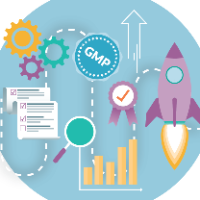Analytical toolkit for rapid formulation development of rAAV gene therapies
Cell & Gene Therapy Insights 2021; 7(9), 1295–1308
10.18609/cgti.2021.171
Recombinant adeno-associated virus (rAAV) gene therapy products have been studied in hundreds of clinical trials for treating multiple rare and monogenic disorders. Commercial success of rAAV gene therapy is also coming to fruition, as two products have recently achieved FDA approval for the treatment of Leber Congenital Amaurosis and Spinal Muscular Atrophy. Driven by clinical and commercial demand, significant advances have been made to analytical methods to characterize and release these products. rAAV vectors have demonstrated sustained stability across diverse bioprocessing conditions and are assumed to be stable in the Phosphate Buffered Saline (PBS) buffer with low levels of surfactant. Still, relatively few accounts of rAAV product formulation and stability data have been published to date, likely caused by substantial sample requirement, time urgency, and limited analytical tools. The traditional formulation development methods are few and many of which have low efficiency, poor precision, or accuracy. Here we present an updated panel of analytical methods compared to conventional methods with a focus on measuring stability-indicating attributes. This analytical toolkit has the capability of examining rAAV at the molecular level under various stress conditions to provide a holistic view of the physical and biochemical attributes of the product. The increased throughput and fast turn-around using small amount of material, while providing multi-attribute monitoring, enables rapid formulation development for fast decision-making and accelerated speed to clinic.
